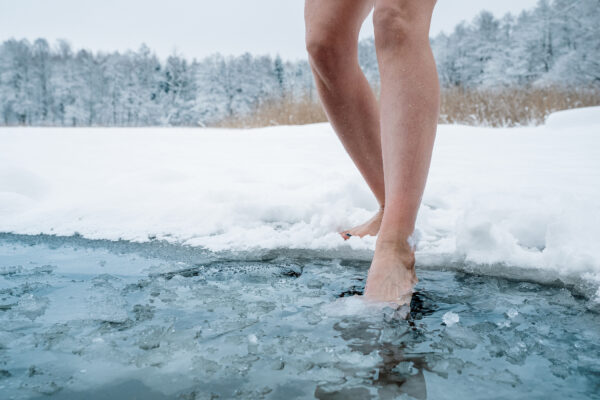Anxiety and Sex
6 Strategies for Coping
By Carlyle Jansen
Anxiety is a common experience for everyone. In fact, it is a natural human survival mechanism that helps us to identify, pay attention to, and respond to potential threats. On the positive side and in moderate amounts, it can help to motivate us to face dealing with difficult challenges. It can help us to perform better, take action and be creative. The body goes into a fight-or-flight response, releasing stress hormones, such as adrenaline and cortisol as boosts of energy to help keep us safe. We can often feel the rush before we try something new. Some believe that evolutionarily speaking, being afraid of danger makes us take fewer risks, seek safety, and focus on doing things well. However, persistent anxiety takes a toll on our emotional and physical well-being.
A Common Experience
When it comes to anxiety and sex, experiences vary. For some, it is just another aspect of life where we experience stress. For others, it is the only part of life where anxiety appears. It often arises when something does not work or look the way we want it to: erections and ejaculation, orgasms, body image and performance. We might worry about our taste or smell, our own or partner’s turn-ons, or ways that we enjoy pleasure, such as having rape fantasies or a foot fetish.
Anxiety around sex can arise when a previous or current partner has remarked on something specific about us or our sex together. It can even surface when a partner, friend, film, or article makes a comment about sex in general and we begin to reflect on our experiences based on that judgment or comment. Some people then begin to worry about their own experiences and how they measure up to that perspective. It can lead to rumination, where we worry with repetitive thoughts about our sexual performance, desires, or body.
Those of us who have a history of trauma may experience flashbacks to situations that happened in the past. We may also worry about the same experience happening again, no matter how well our partner tries to reassure us or how well we trust them in other aspects of life. It can take some conscious work on ourselves, sometimes with our partner and sometimes through talking with a therapist, to work through those experiences to the point where they no longer impede current sexual experiences to the same extent.
The Stress Response: What Happens?
Our bodies have a very useful and important fight-or-flight response: the body responds to danger as though for example a bear was chasing us. Blood vessels constrict and blood flows out of our erogenous zones to our muscles and main organs. The very thing we are afraid of often happens: we ejaculate more quickly than we would like or just lose an erection, we have a hard time having an orgasm and the arousal is lost. Moreover, we are usually unable to concentrate on what we are doing due to the many thoughts and emotions that whirl in our minds and bodies. As a result, we can’t really feel any physical pleasure because our attention is elsewhere. We are usually not very present to a partner who will often feel the disconnection. All of these uncomfortable and potentially embarrassing experiences then usually result in a reduction of desire for sex to the point where we might start to avoid sex and intimacy.
Helpful strategies
The good news is that anxiety is so common that there are many proven strategies for managing it. Many of these work particularly well when applied to sexual situations.
- First of all, it is best to bring our anxieties to light. The shame and silence about them can exacerbate and perpetuate their impact. Talk to a partner about what is happening for you around sex, journal about your experiences, share with a friend who is a good listener, reach out to a therapist familiar with anxiety and sex. Even just getting the topic out into the open can reduce the anxiety. Gaining reassurance from a partner about their experiences of sex with you or their desire for you can help.
- Practice the 54321 technique to relax before you start or if you get distracted by your anxious thoughts: take a deep breath and notice 5 things that you can see, 4 things that you can physically feel (such as the chair under your butt, the ground under your feet), 3 things you can hear, 2 that you can smell (or would like to smell) and one you can taste or would like to taste. This exercise helps to bring you into the moment rather than fearing what might happen in the future.
- Practice mindfulness to remain focused on the pleasure in the moment. Sex therapist Lori Brotto’s book Better Sex Through Mindfulness has excellent exercises and information.
- Focus on pleasure, not performance. Expand your definition of “sex” and try different approaches (eg not requiring an erection) or toys that help with pleasure. Let go of the goal orgasm and focus on connection and pleasure.
- Learn techniques that can help you feel more confident about your own pleasure as well as pleasuring your partner. There are many books, workshops (live, online, and recorded) that can help boost your skills and confidence as a lover.
- Reduce your consumption of alcohol and other substances if they have been used as a coping strategy to not feel or be present for sex. A healthier lifestyle overall will help with erections, arousal, and orgasms.
Carlyle Jansen is the founder of Good For Her, a sexuality shop and workshop centre in Toronto. If you have questions or comments, email carlyle@goodforher.com or visit goodforher.com




